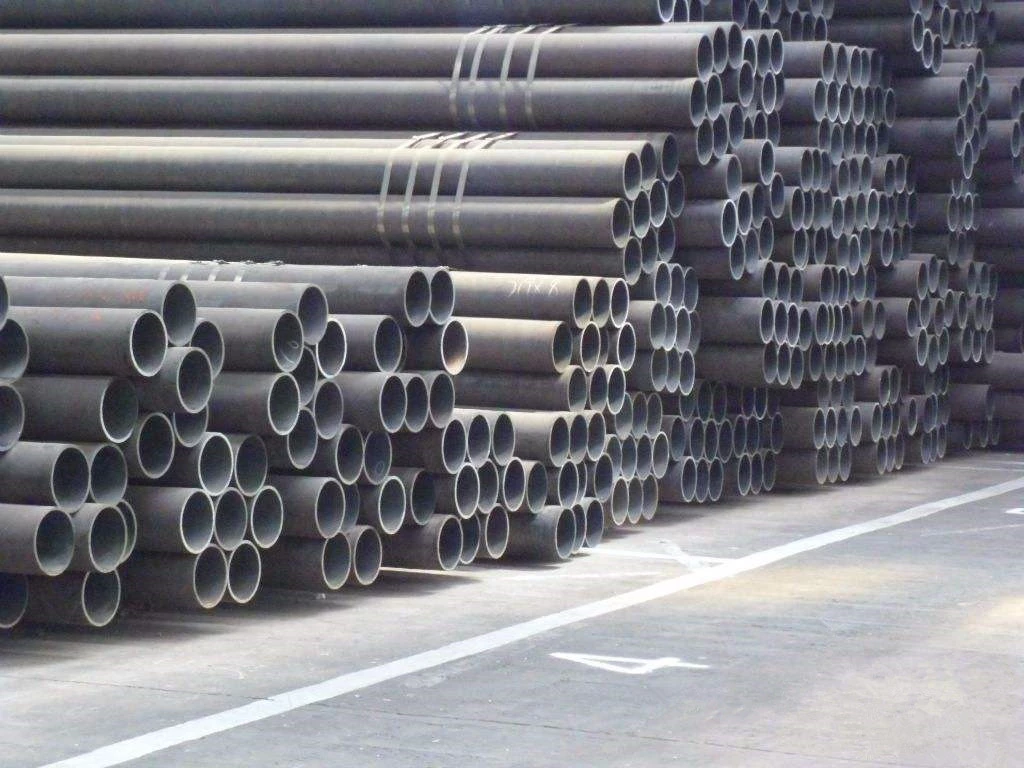Large Bore Seamless Steel Pipes and Small Bore Seamless Steel Pipes
Seamless steel pipes with small diameters can be called small bore seamless steel pipes, which can be divided into seamless small bore steel pipes and straight seam (also known as welded) small bore steel pipes. Generally, seamless steel pipes with diameters from 4mm to 89mm can be collectively called small bore seamless steel pipes.
Large bore seamless steel pipes refer to seamless steel pipes with diameters greater than 325mm, and large bore seamless steel pipes can also be divided into hot-rolled large bore seamless steel pipes and thermal expansion large bore seamless steel pipes which can be produced not just in the sizes of Chinese standard. Thermal expansion seamless steel pipes often have relatively low density but strong contraction. The finishing processes such as rolling and drawing are adopted to expand the diameters of thermal expansion seamless steel pipes. These processes can thicken the walls of pipes within a relatively short period of time and can help produce special types of seamless pipes with low costs as well as high production efficiency.
According to different production methods, seamless pipes can be divided into hot-rolled pipes, cold-rolled pipes, cold drawn pipes and extruded pipes. Generally speaking, hot-rolled seamless pipes are usually produced through the automatic tube rolling mills and their production process consists of the the following steps. Check the solid billets, repair the defects on the surfaces and cut the solid billets into those with the required length; determine the centers of the billets' perforation end faces and sent the billets to the heating furnaces to heat them; punch holes on the billets through the piercing mills, continuing to rotate the billets and making them forward during the perforation process; under the action of rolling, the cavities gradually form inside the billets, which makes the billets gradually become the hollow billets; sent the hollow billets to the automatic tube rolling mills to continue rolling them; sent the hollow billets to the reeling mills to reel the wall thickness of the hollow billets and then sent them to the sizing mills to determine their diameters, making them reach the requirements of specifications. The continuous rolling mill process is an advanced method to produce the hot-rolled seamless steel pipes. If we want to produce seamless pipes with smaller diameters and better qualities, cold-rolled process, cold drawn process, or a combination of both processes is supposed to be adopted.
Large bore seamless steel pipes refer to seamless steel pipes with diameters greater than 325mm, and large bore seamless steel pipes can also be divided into hot-rolled large bore seamless steel pipes and thermal expansion large bore seamless steel pipes which can be produced not just in the sizes of Chinese standard. Thermal expansion seamless steel pipes often have relatively low density but strong contraction. The finishing processes such as rolling and drawing are adopted to expand the diameters of thermal expansion seamless steel pipes. These processes can thicken the walls of pipes within a relatively short period of time and can help produce special types of seamless pipes with low costs as well as high production efficiency.
According to different production methods, seamless pipes can be divided into hot-rolled pipes, cold-rolled pipes, cold drawn pipes and extruded pipes. Generally speaking, hot-rolled seamless pipes are usually produced through the automatic tube rolling mills and their production process consists of the the following steps. Check the solid billets, repair the defects on the surfaces and cut the solid billets into those with the required length; determine the centers of the billets' perforation end faces and sent the billets to the heating furnaces to heat them; punch holes on the billets through the piercing mills, continuing to rotate the billets and making them forward during the perforation process; under the action of rolling, the cavities gradually form inside the billets, which makes the billets gradually become the hollow billets; sent the hollow billets to the automatic tube rolling mills to continue rolling them; sent the hollow billets to the reeling mills to reel the wall thickness of the hollow billets and then sent them to the sizing mills to determine their diameters, making them reach the requirements of specifications. The continuous rolling mill process is an advanced method to produce the hot-rolled seamless steel pipes. If we want to produce seamless pipes with smaller diameters and better qualities, cold-rolled process, cold drawn process, or a combination of both processes is supposed to be adopted.


